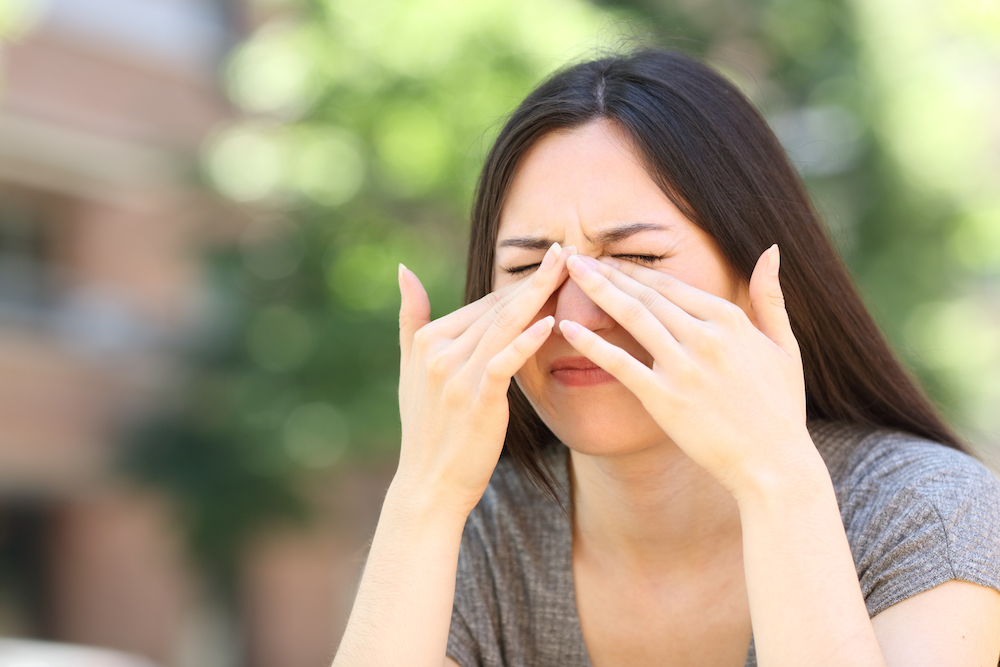
People who suffer from dry eye syndrome and dry eyes are different. Dry eyes do not worsen during the summer season only. Some people experience worse symptoms during the cold seasons than in the warmer ones. So if you experience dry eyes, you need to learn more about the condition and why your symptoms worsen during certain seasons, as well as how to relieve your discomfort.
What Is Dry Eye Syndrome?
Dry eye disease is one of the most common eye conditions. It occurs when the tears you produce are unable to offer adequate lubrication for your eyes. Your tears may be unstable or inadequate due to several reasons. For instance, your eyes may be producing poor-quality or not enough tears. This can lead to damage and inflammation of your eye’s surface.
Dry eye disease can be quite uncomfortable. You may experience a burning or stinging sensation in your eyes, in addition to other symptoms.
Symptoms of Dry Eyes
Dry eye syndrome often affects both eyes. Some of the symptoms you may experience include:
Eye redness
A scratchy, stinging, or burning sensation in your eyes
Difficulty wearing contact lenses
Stringy mucus in and around your eyes
Eye fatigue
Blurred vision
Sensitivity to light
A foreign object sensation in your eyes
Nighttime driving difficulties
Watery eyes
Causes of Dry Eyes
Dry eyes often result from conditions that affect the tear film, which has three layers. These are fatty oil, fluid, and a mucus layer. These tear layers keep the surface of the eye clear, smooth, and lubricated. Issues with any of these tear layers can lead to dry eyes.
Many factors can lead to the dysfunction of the tear film. Some of these include autoimmune disease, hormone changes, allergies, inflamed eyelid glands, and seasonal changes. Left untreated, dry eyes can lead to infections and eye damage. So if you suffer from dry eye disease, you need to research and consult an eye doctor.
Why Symptoms of Dry Eyes Get Worse in the Winter
Windy or cold weather, combined with indoor heating, often causes many people to experience dry eyes. The worsening of dry eye symptoms may be due to various reasons.
For example, high winds and cold air blowing into your face may cause your eyes to dry out. Indoor heating during the cold season may also cause dry eyes. If you feel that your symptoms tend to worsen during the winter months, you are not alone.
During the cold season, the air gets significantly drier as temperatures drop. This causes your skin and eyes to lose moisture due to evaporation. During the winter months, you probably spend most of your time indoors. But indoor heating exposes your eyes to dry heat, which can further dry out your eyes.
Essentially, the outdoor and indoor environments you experience during the winter can cause your eyes to lose moisture. According to a study conducted in 2015, this condition is more prevalent in the spring and winter seasons.
How to Prevent Dry Eyes in the Winter
If you often experience severe dry eyes symptoms during the winter months, you can do certain things to reduce your symptoms. These include:
Use an indoor humidifier
Avoid using fans, especially at night
Place warm compresses over your eyes several times throughout the day
Use the right artificial tears to lubricate your eyes
Ask your eye doctor to recommend the best OTC ointments
If you wear contact lenses, always keep them clean
For more on dry eye syndrome and how it changes during seasons, contact Federal Hill Eye Care at our office in Baltimore, Maryland. You can call (410) 752-8208 today to schedule an appointment.







